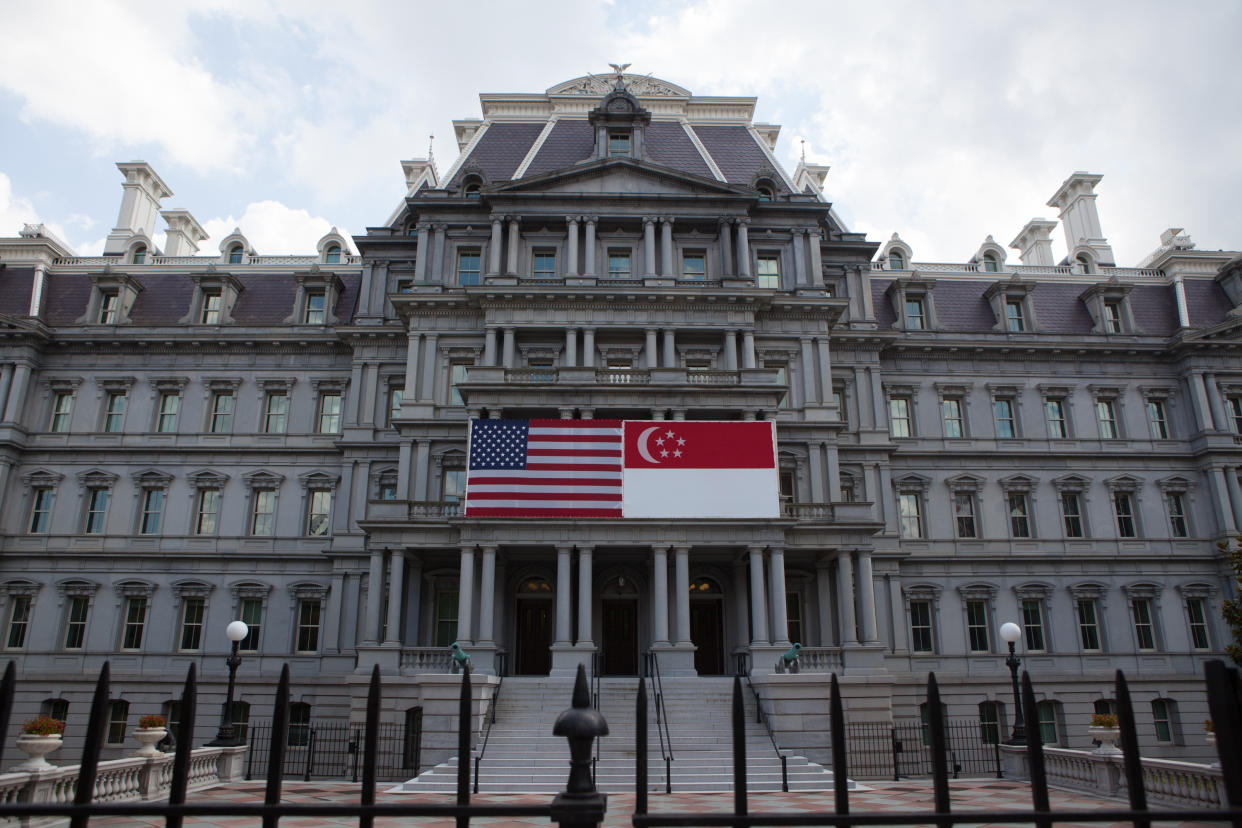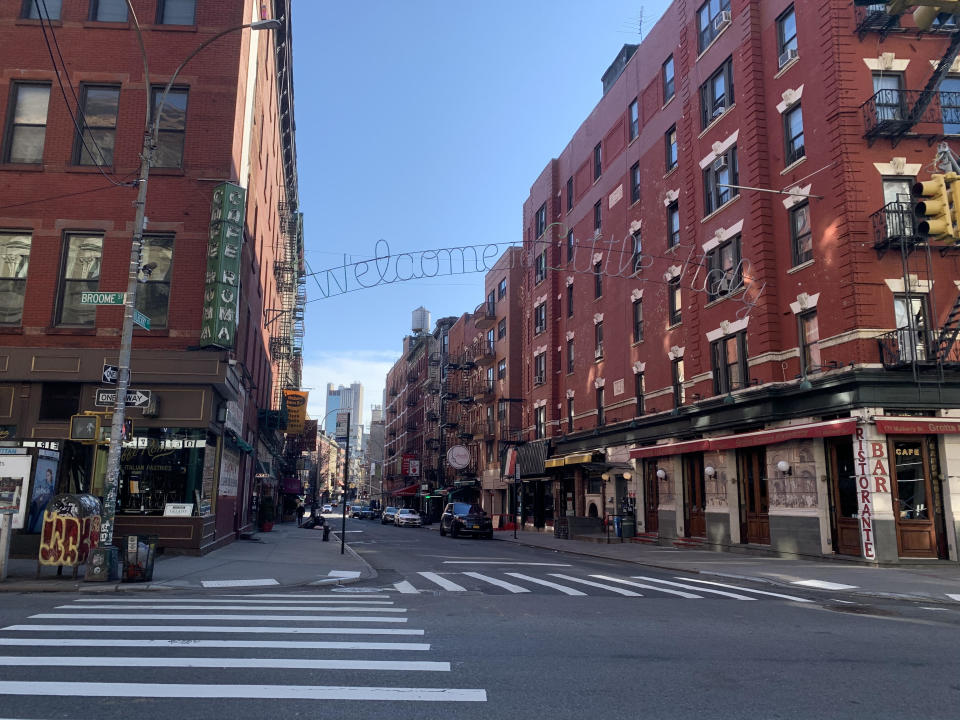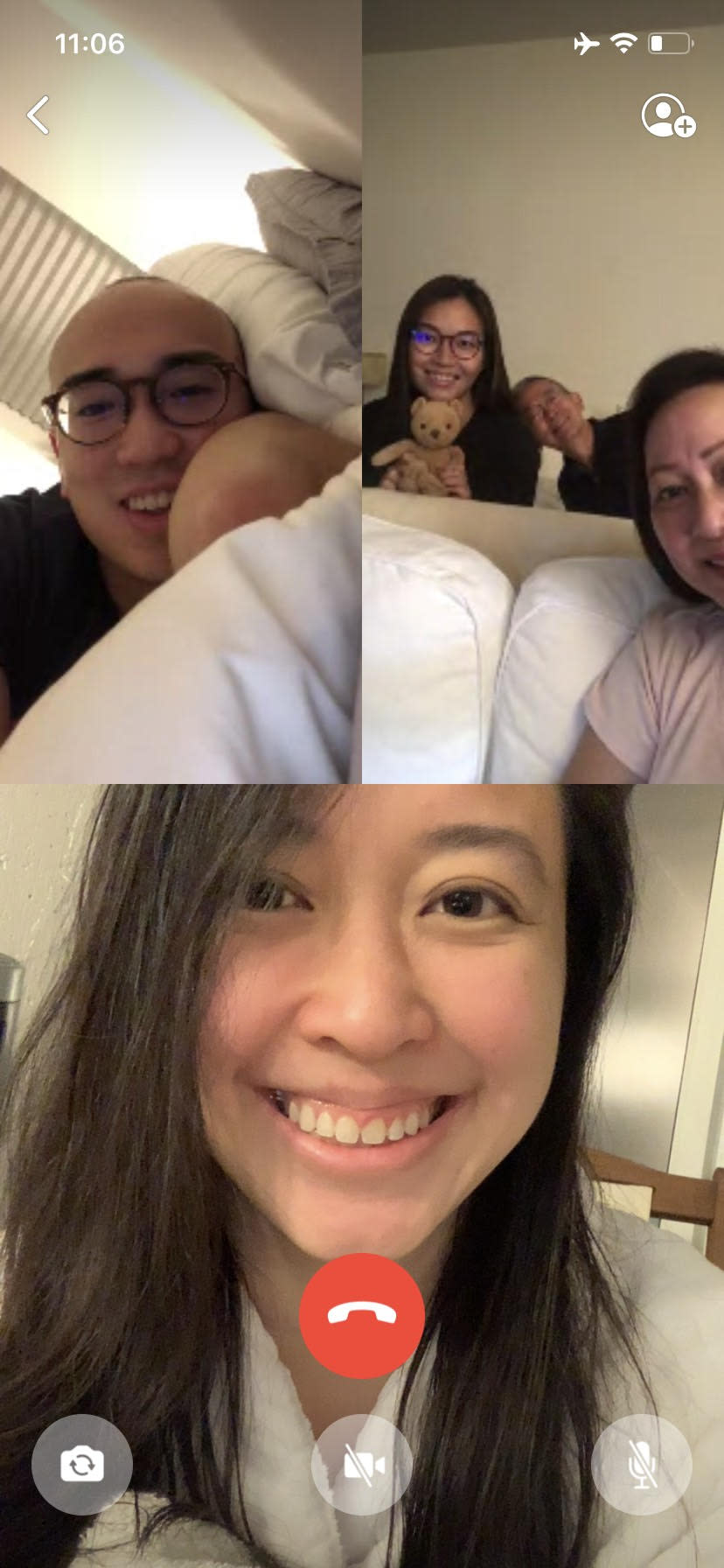COVID-19: Amid rising infection numbers, some Singaporeans choose to remain in the US

SINGAPORE — For just a little while, corporate lawyer Goh Yi Han, 32, thought about coming home from New York City, where he has been based for the last seven years.
Amid the global COVID-19 pandemic, the state of New York has seen some 44,000 cases, with more than 500 deaths. Non-essential businesses have been shut down, with non-essential workers told to stay home.
Speaking to Yahoo News Singapore over the phone, Goh said that he had sought advice from the Singapore consulate. “They said if you want to leave, you better leave soon, as there may not be flights available. But if you do go, you should be prepared not to be able to come back for a few months.”
After wrestling with the decision, the bachelor decided to stay on – after all, he is gainfully employed, has medical insurance and has confidence in New York’s healthcare system.
Pointing out that there has not been a breakdown of law and order or food shortages, he added, “I would have to continue working while in Singapore, which is not feasible given the time difference, and it might also jeopardise my green card.”
Beyond the practical considerations, there is also a sense of duty for Goh. “I feel a commitment to my city and my community. This is not the time to run away and spread more germs elsewhere.”
But he acknowledged, “Directly compare Singapore’s response to COVID-19 with western countries, and it’s really eye-opening, even after I’ve been here for so long.”

Should I stay, or should I go?
As of Saturday (27 March), there are more than 104,000 confirmed cases of the coronavirus in the United States, surpassing China to become the country with the most number of cases. Over 1,700 have died in the US.
In light of the pandemic, the government has strongly advised Singaporean students abroad to come home, while extending assistance to working adults who wish to return.
Multi-ministry taskforce co-chair Gan Kim Yong told Parliament recently that there are more than 200,000 Singaporeans abroad. Some 1,200 Singaporeans are returning home from the US and the UK each day.
According to 2013 data from the United States Census Bureau, there are more than 30,000 Singaporeans in the US.
Boston-based graduate student Jiezhen Wu, 30, wrestled with the decision for several weeks before deciding to stay put. Her Los Angeles-based husband Jared Kong, 31, had cancelled his flight to Boston, so that they could both play their part in flattening the curve.
“I’m staying because I have a community here. I’ve put down roots for the past year here, and have built a home for myself at Harvard. I’m staying because I know that while I would love to be with my husband or family right now, that sometimes putting community well-being over my personal desires is necessary,” she wrote on Instagram.
“Ultimately we felt it would be safer to stay – for us, for our loved ones, for the larger community and for Singapore.”
Wu, who arrived last August to pursue a Masters degree in education at Harvard University, told Yahoo News Singapore over email that she also recognised the privilege of her position. “There have been a lot of students who have been kicked out of their dorms and have no place to go. My situation is a little different because I am in graduate housing which is self-contained apartments, so we haven’t had to move out. I feel safe where I am and have a roof over my head.”
Asked how the city is coping with the situation, Wu said that “things have calmed down a bit” after an initial bout of panic buying, while people are taking social distancing seriously. “Thankfully, a shutdown of all non-essential businesses still allows grocery stores and pharmacies to be open, and people are still allowed to take walks outside.”

Worried and scared
For New York-based Erica Lye, 33, she has little choice but to stay on. The stay-at-home mother has a seven-month-old baby and her husband, a South African, is currently unable to enter Singapore due to travel restrictions imposed on short-term visitors.
Lye had initially sought a direct flight home on Singapore Airlines but was unable to find one. She is currently filing an appeal for her husband to be granted an exception. He had been in the process of applying for permanent residency when the pandemic struck. “I am not sure what to do given the situation now, because a lockdown might happen soon. We do not want to risk getting the virus as my baby is so young and my husband is 51 years old.”
Nevertheless, the former marketing director says things remain calm in her neighbourhood. “The streets were only quieter two days ago. People seem pretty calm and chill about it.”
A 27-year-old Singaporean, who declined to be named, made a slightly different decision: she has temporarily relocated from New York to Wisconsin, in hopes that it will be a safer location to ride out the pandemic.
The graduate student, who is in the middle of an internship, explained, “There is an outbreak here, but it’s not out of control. Wisconsin is much more rural. In New York, I can look out my window and see my neighbour. Here, there are no people for miles around, and it’s much less densely populated.”
While her course of study ends in the summer, she had planned to stay on in the US to work. And like Goh Yi Han, she felt that it would be too disruptive to go back home and work on a US schedule. “Just to be physically present in the US makes you feel less disconnected, even though we are not in the same state. When you go back home, there’s also no certainty of when you can come back.”
While all of her Singaporean student friends have left the US, she described a nervous mood in the country. “Everyone in the US feels it very deeply, even here in the Midwest. Definitely, people are hunkering down.”
Stay in the know on-the-go: Join Yahoo Singapore's Telegram channel at http://t.me/YahooSingapore
Related stories
'Mummy, when are you coming home?': A Singaporean family separated by COVID-19
Coronavirus: Family reunions on hold as more Singaporeans return from Wuhan
Wuhan virus: Quarantined in Singapore, longing for family in China



